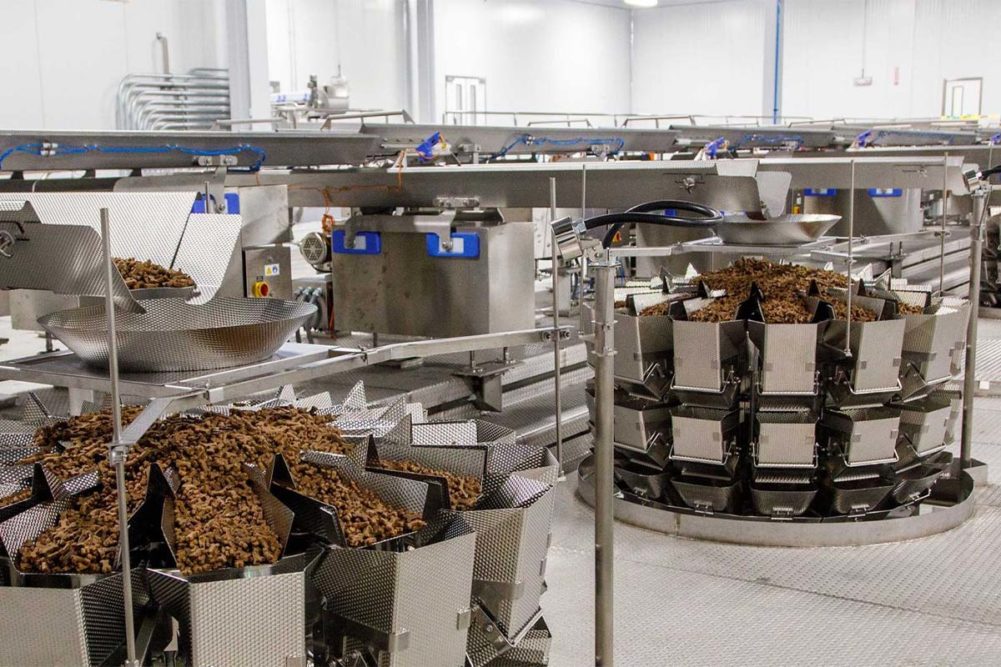Western sanctions against Russia have been impacting pet food markets in Central Asia that imported products from there.
Since mid- 2022, several countries in Central Asia have struggled against occasional shortages of pet food as well-planned supply schemes fell victim to Western sanctions against Russia. Local pet food manufacturers, however, are starting to fill the gaps not only on their home ground but also in neighboring counties.
In March 2022, customers in Kazakhstan, the largest pet food market in the region, witnessed unexpected turbulence in the domestic market, as some brands, including Whiskas, Kitekat and Pet Chow, disappeared from retail shelves, while the price of others spiked, according to local publication “Mail,” citing market participants.
Aigul Imbergenova, president of the Kazakhstan Animal Protection Foundation Ayanysh, explained that the pet food market was collateral damage from Western sanctions against Russia. A large portion of Western pet food had been delivered to Central Asia, and especially, Kazakhstan and Kirgizia, through Russian distributors. Both countries share a common customs space with Russia within the Eurasia Economic Union.
Around August, Mars pet food brands re-emerged on the Kazakhstan market at higher prices, which have been steadily going up ever since, Imbergenova said. Other companies have yet to resume supplies. Supermarkets are filled with mass brands, while wholesalers limit deliveries of pet foods to specialty stores.
Tatiana Semenova, a Semeya-based owner of a specialty pet food store, complained that her store got wet pet food only once a month, after which all products usually are sold to customers in a matter of a few hours. She explained that before November 2022, wholesalers executed all orders, while now they are restricting sales to seven to nine batches to one retailer per month.
The price dynamics in the market remain largely uneven. While the price of Royal Canin climbed from 4,000 tenges (US$9) to 6,000 tenges (US$13.5) per kg over the past year, the average bills customers pay for Grandorf nearly doubled, reaching 10,000 tenges (US$22.5) per kg. Local distributors give no reason for the upward price rally, but the business community and customers believed anti-Russian sanctions played the key role, said Victoria Mitina, a pet store owner.
The impact of ‘gray import’ pet foods
Uzbekistan, Central Asia’s second largest pet food market, faced similar issues, though to a lesser extent. Since June 2022, Adler Group, the local distributor of Mars pet food in the country, suspended supplies, “due to the events in Russia” according to the Russian consultancy ZooInform, quoting clients.
Another large wholesaler, Zoomaks, which imported a long list of European brands including Sera, Belcando, Leonardo and Aquael, also curtailed operations. On the other hand, the pet food market in Uzbekistan historically had a stronger reliance on “gray imports” from China—pet foods entering customs without having to pay duties or taxes like VAT or income taxes. A market study conducted by ZooInform in early 2023 showed that in most stores, the share of pet food imported through various “gray” schemes accounted for nearly half of all ranges in most pet food stores.
Gray imports also play a vital role in the markets of Tajikistan and Turkmenistan. Local press reported that some goods are smuggled, as border demarcation is yet to happen in some parts of the region.
Dmitry Alpert, founder of one of the largest pet food distributors in Tashkent, Global Food, disclosed that supplies from Russia have nearly come to a halt, citing rising operational costs of Russian companies and a surge in logistics costs. In the past, Global Food supplied pet food from the Belgorod, Russia-based manufacturer Limkorm, but in the current economic situation, Alpert said Russian goods have lost competitiveness in Uzbekistan.
Window of opportunity for local pet food companies
Meanwhile, there are signs that the current crisis offers additional opportunities to local manufacturers. In mid-2022, Russian agricultural giant Miratorg started selling pet food in the Kazakhstan market. The company disclosed plans to boost the production performance of its pet food division from 20,000 tons in 2022 to 40,000 tons in 2023 in a bid to fill the gaps left by the departure of foreign firms.
At the same time, leading Kazakhstan pet food company Yummi has established exports of pet food to Russia and Kirgizia. The company has started distributing its products through the leading Russian marketplaces Wildberries and Ozon; both have been putting a lot of effort into expanding their presence in Central Asia. Another Kazakhstan pet food company, Asia Nutrition, manufactures pet food under the Jandi brand; however, it is not following the same path, as the company sells its pet food only in Almaty.
“Mail” also reported that the Kazakhstan market is currently experiencing an inflow of Chinese pet food brands. At the same time, some projects in the pet food industry in the country have been abandoned, as investors lack confidence in the future.
Source: petfoodindustry


